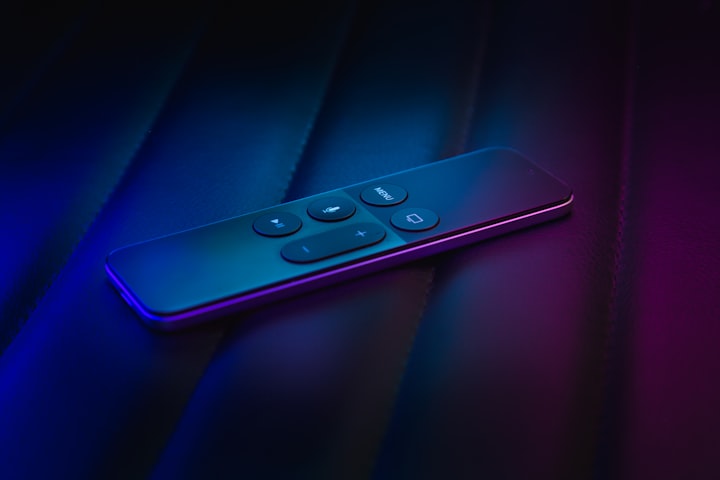Can Netflix and Sleep Coexist? The Consequences of Having the TV On While You Rest.
Exploring the Impact of Watching Netflix in Bed: Effects on Sleep Quality and Health.

Can't get enough of "Queen's Gambit" or love comfort-watching the same shows each night? Many people find solace in late night TV viewing — or even while sleeping.
Although some believe it helps them get a good night's sleep, experts generally suggest it's not beneficial for an optimal slumber.
Is sleeping with the TV on good or bad?
Sleep Watching TV may not be the worst thing health-wise, but it likely won't have a positive impact either.
Watching TVs can stimulate your brain and expose you to more blue light, which may lead to disruptions in hormones, lack of sleep, and other potential health issues.
If you rely on the TV to help you sleep, you may gain some advantages. However, if you can do without it, that may be a healthier choice.
Wait, why do people sleep with the TV on, anyway?
Many people find themselves nodding off while watching TV - and they're not alone! So, why is it that we often continue to watch even as we drift off to sleep?
- Binge-watching. In a 2019 survey conducted by the American Academy of Sleep Medicine, 88% of American adults reported having lost sleep while binge-watching TV shows. It appears that many people doze off before the end of the episode.
- Comfort. Approximately 30% of adults surveyed in 2016 reported using television as a sleep aid. The potential benefits can be attributed to the calming effects of its glowing light and gentle sound.
- Habit. As Mick Jagger and Benjamin Franklin noted, it can be difficult to break old habits. For instance, if you've gotten used to watching movies before bed, it can be hard to stop that nightly ritual.
So is it bad to sleep with the TV on? Potential negatives.
The majority of research indicates that Netflix 'n' snoozing is not beneficial for one's health and wellbeing.
Examining the Impact of Late-Night "Friends" Episodes on Dreams, Hormones, and Health.
May dig you into sleep debt.
The rule of 7 to 8 hours of sleep per night has been repeated many times, and for good reason. Both the CDC and the American Academy of Pediatrics recommend this amount, as does your mum. It's clear that 7 to 8 hours of sleep is essential for good health in adults.
If you don't get enough sleep, it can lead to a "sleep debt" similar to a credit card debt. This can have a negative impact on your mental state, including your ability to think, concentrate and move with precision. Try to avoid taking on a tough task, such as an obstacle course, a test or a presentation, if you're not well-rested.
Over time, insufficient sleep can lead to both psychological and physical health problems.
A 2014 study revealed that there may be a correlation between watching television while sleeping and feeling more tired and having lower sleep quality.
Sleeping with the TV still on can lead to decreased rest and prevent you from getting the deep REM sleep that is so important for your wellbeing. Even if you are not actively watching the screen, it can still disrupt your slumber.
Decreases melatonin production.
Heed the warning of the blue light bogeyman. To prevent sleep disruption, experts suggest avoiding smartphone usage and TV shows before bedtime.
Research from 2013 suggests that blue light inhibits the production of melatonin, a hormone which helps with sleeping and recovery. Melatonin is the hormone that tells the body when it is time to rest.
Electronic use can suppress melatonin levels, making it difficult for the brain to differentiate between day and night. The flickering of screens can lead to the brain mistakenly believing it is daytime, resulting in disrupted sleep patterns.
It gets your brain buzzing.
The 24-hour news cycle and social media can be overwhelming, with constant stimulation being accessible at our fingertips. It's easy to get drawn into the many-screened present.
Data from 2012 indicates that an overabundance of exposure to electronic media prior to going to bed may be an underlying cause for the extended sleep deprivation among adolescents.
The bombardment of sights and sounds while you sleep can be overly stimulating to your mind - even while you are asleep.
During the earlier portions of your sleep cycle, you can still take in visuals and sounds. Thus, your brain can still comprehend the dialogue and perhaps even incorporate it into your dreams. Consequently, if you're watching shows such as "Black Mirror" or "Mindhunter," your dreams may become quite unsettling.
May cause health problems.
Sleeping with the TV on may lead to decreased sleep quantity or quality. Without sufficient restorative sleep, you could potentially experience:
- a weakened immune system
- increased risk of heart problems
- increased diabetes risk
- increased cancer risk
- memory loss, trouble thinking, or forgetfulness
- decreased sex drive
- weight gain
- mood swings
Is it ever good to sleep with the TV on? Possible positives.
Snoozing with the television on may have implications on one's health, yet a 2019 study proposes that it may not be entirely detrimental - especially if it aids in achieving slumber.
Basically, it’s better to sleep with the TV than to not sleep at all.
Not unlike white noise.
Many people use the sound of television as a form of white noise, to assist in calming them and helping to drift off to sleep. The volume is kept low, with no need to follow the narrative or look at the visuals - just allowing the sound to be a gentle accompaniment.
If that applies to you, there may not be a large issue. Much like the hum of a fan or the chirp of crickets, if the sound doesn't stimulate your mind, low-level TV noise could be a successful sleep aid.
A 2010 study found that university students who used the internet had poorer sleep quality compared to those who watched television.
Not-as-bad blue light.
Although TVs emit some blue light, it is less than that of phones, tablets, or laptops. Reducing blue light exposure may help improve sleep.
There are always blue-light-blocking glasses available, however, wearing them while asleep is not an option.
Comfort and relaxation.
Whatever your preferred TV series is – be it "That '70s Show" or "Schitt's Creek" – many people have one that helps them to relax and feel at ease. Therefore, if your chosen show helps you to get comfortable and lowers your stress before bedtime, it may not be so detrimental.
A 2012 study suggests that revisiting familiar fictional universes can be restorative, helping one relax and enhance self-control.
Research from 2008 showed that music could help enhance sleep quality in students. Thus, it is conceivable that a movie's soundtrack can have a similar influence.
Maxing and relaxing: Other tips for sleep.
If you're looking to reduce your nightly TV time or are just seeking to improve your sleep, consider these tips to get more restful Zzz's:
- Avoid caffeine late in the day. Cut back on your coffee consumption at least 5 hours before bedtime.
- Say no to after-dinner snacks. Refrain from eating after your evening meal, as food can stimulate you and prevent you from getting enough rest.
- Don't exercise close to bedtime. Exercise can help you sleep better, however, it must be done earlier in the day.
- Pass on the nightcap. Although it may seem like a good idea, alcohol can disrupt your sleeping patterns.
- Keep a consistent bedtime. Maintaining the same sleep schedule is essential for the regulation of your body clock.
- Think about taking melatonin. It may be beneficial.
- Wear a sleep mask. Keeping out external light can aid in better sleep.
- Try a noise machine. Instead of watching TV, choose from white noise, pink noise, or other calming sounds.
- Drink a sleep-promoting tea. Enjoy something such as chamomile, lavender, or lemon balm to help you drift off.
- Make your bedroom cosy. Make your bed comfortable and inviting, and keep work, stress, and electronics far away.
Takeaway.
Snoozing while watching TV might not be the best choice. This could result in a lower quality of sleep and even health problems.
If you believe that you can't sleep without TV, it is alright to use it as a sleep aid temporarily - it is always better to get rest than to not have any.
Play gently and keep the display at a distance from you to reduce potential issues.
About the Creator
Victor Pastor
I write stories to inspire and encourage others. I believe in the power of positivity and the impact it can have on people's lives. With my stories, I aim to evoke emotions, spark new perspectives, and help people realise their potential.






Comments
There are no comments for this story
Be the first to respond and start the conversation.